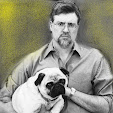
Okay, I'm back. The holidays bore into my reading and writing time, but I survived. More importantly, Richard Stark's supreme heister Parker is back -- in
The Outfit, the second graphic novel adaptation of a Parker book by Darwyn Cooke.
Cooke first adapted Stark to the graphic novel with 2009's
The Hunter -- the first Parker novel (1962; the source for the films
Point Blank and
Payback). I liked this first adaptation pretty well, but I like the second one even better. (By contrast,
The Hunter is a stronger novel than
The Outfit.) I'm no authority on graphic novels, but Cooke's illustrations reflect the speed, menace, and seedy appeal of the source novels. Cooke's style in both books also smacks of the style of some illustrations from the period when the books were written -- that 60s hipster type of illustration.
The Outfit tells the story of Parker's effort to get the mob -- the Outfit -- off his back. The middle portion of
The Outfit features these great faux outtakes from period magazines such as
The Lowdown: Crime Confessions Weekly and
Turf and Sport Digest. The outtakes tell capers in short form. Parker, to hit the Outfit where it hurts, has his heister acquaintances knock off various operations, which are recounted in these magazines. This technique provides a fresh way to tell a story within a story.
Finally, Cooke goes a long way to echoing the spirit and emphases of Richard Stark (Donald Westlake's best-known pseudonym). Parker is a loner, but honest and loyal in his way. He also functions as a hard workingman criminal, in contrast to the soft and corporatized mobsters of the Outfit. It sure is refreshing when Parker solves a problem with a gun. When Westlake died, it was a real blow to me and a lot of other readers. On and off, for a couple of years, and then later again, I got a lot of nourishment from Stark's Parker books. It's great to experience a faithful version of Parker in this new form.

